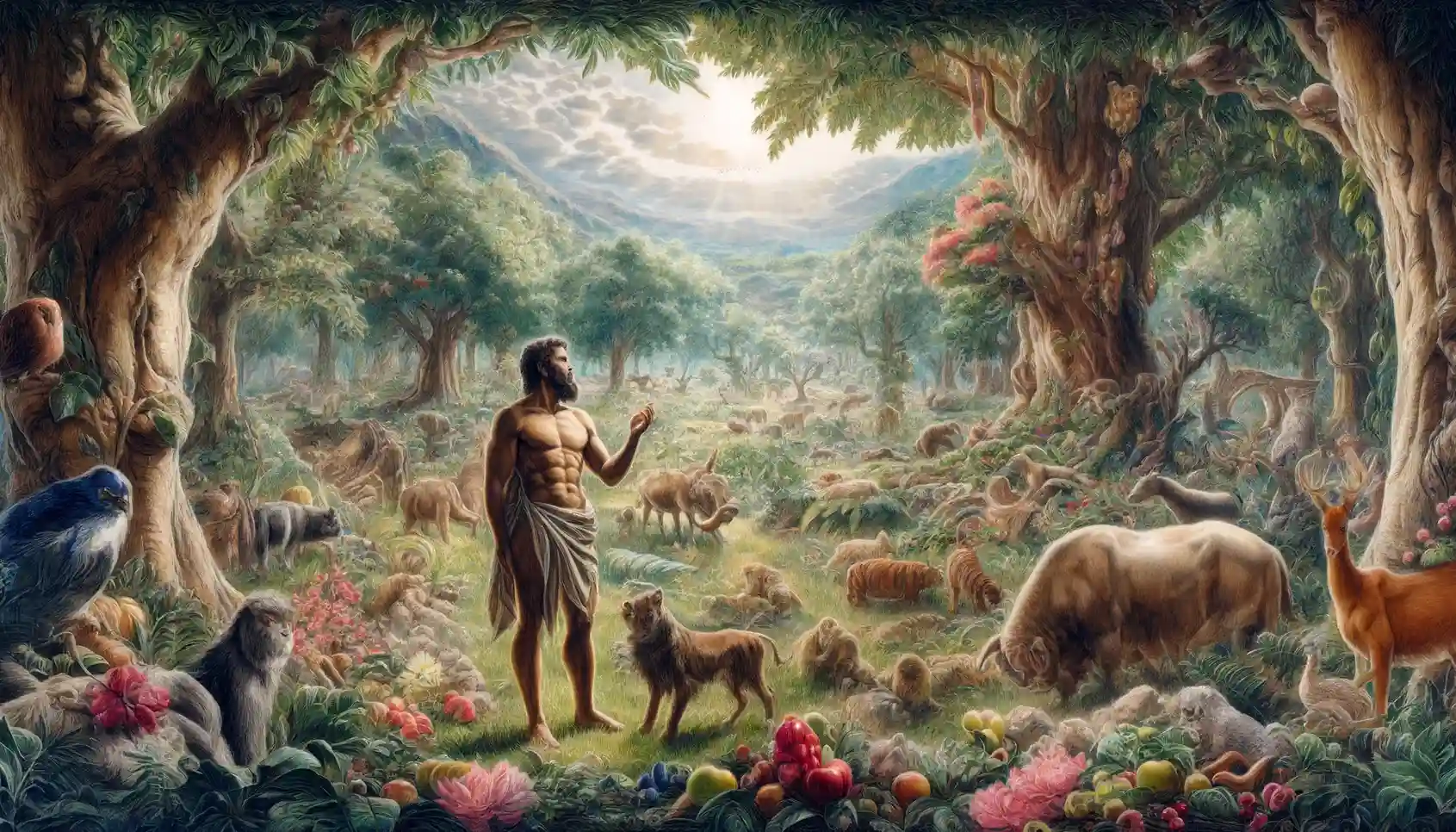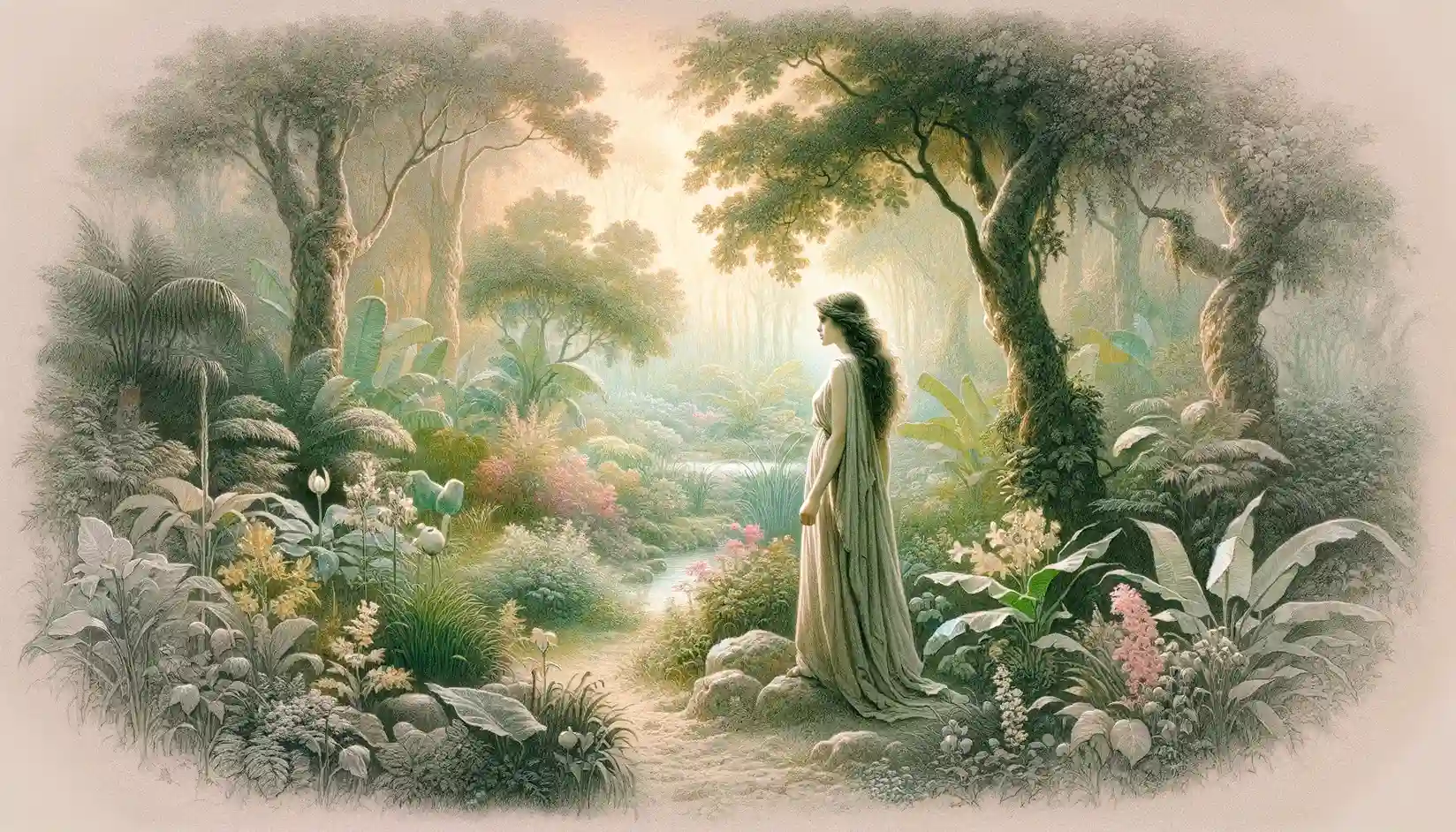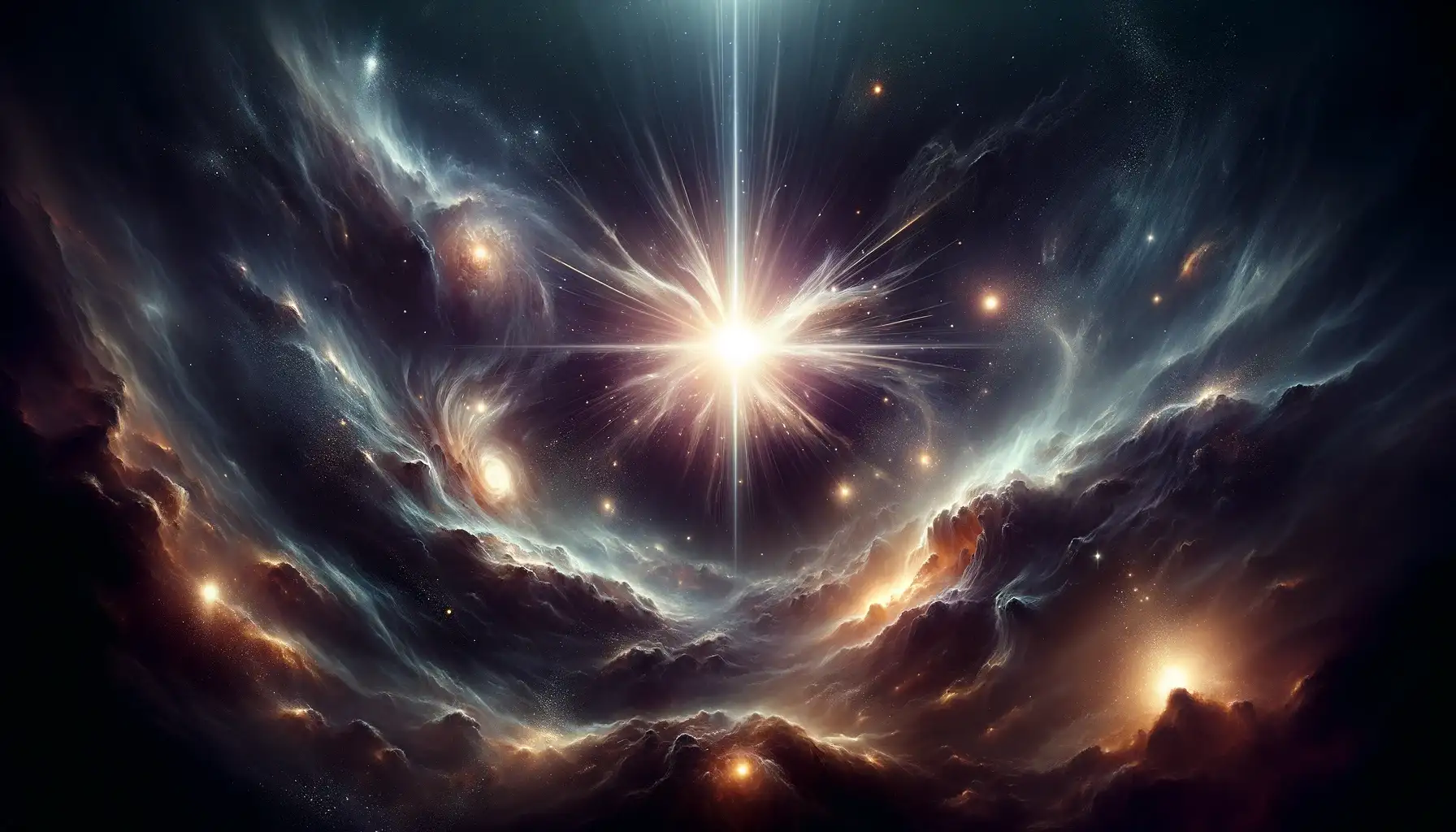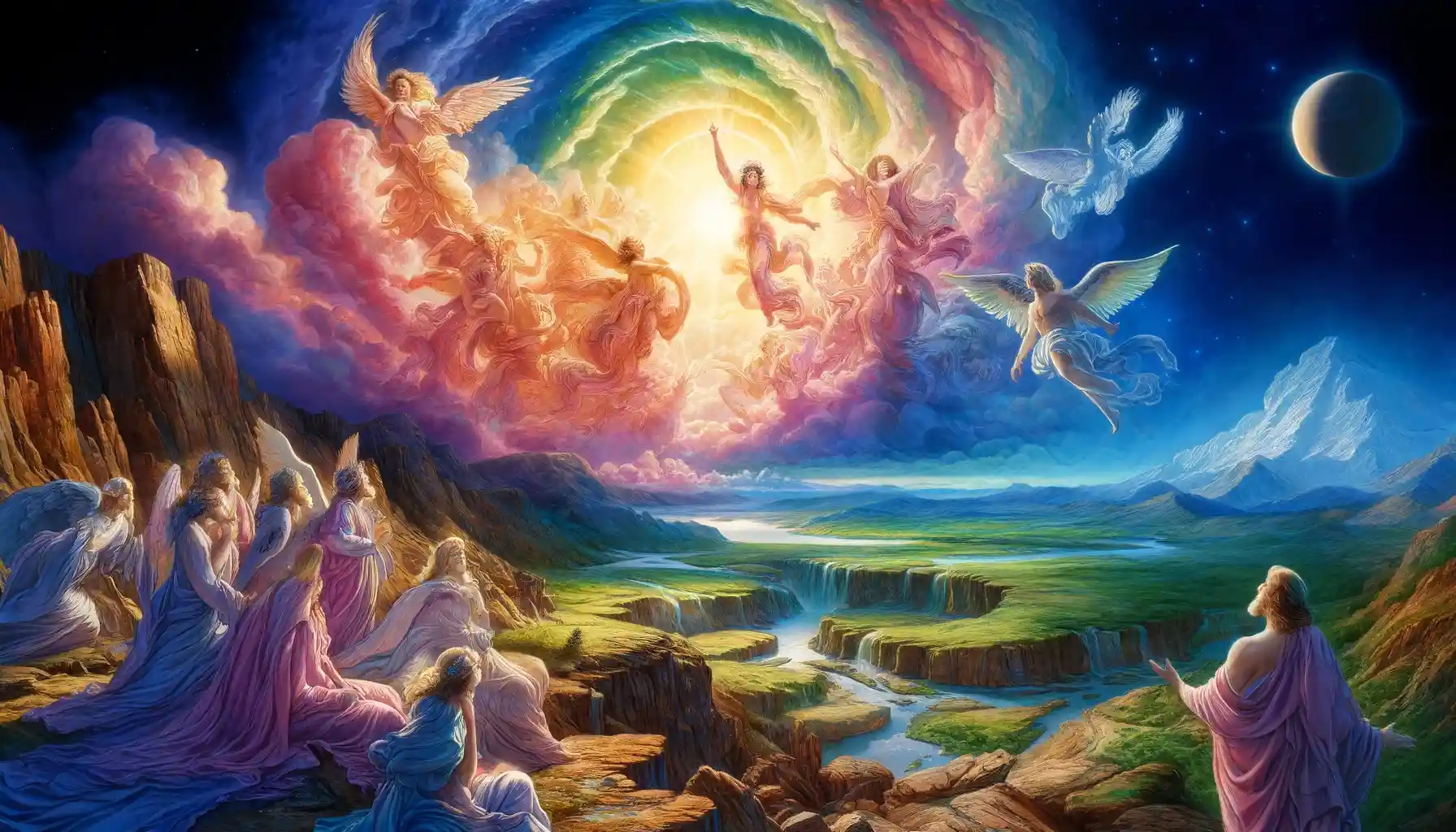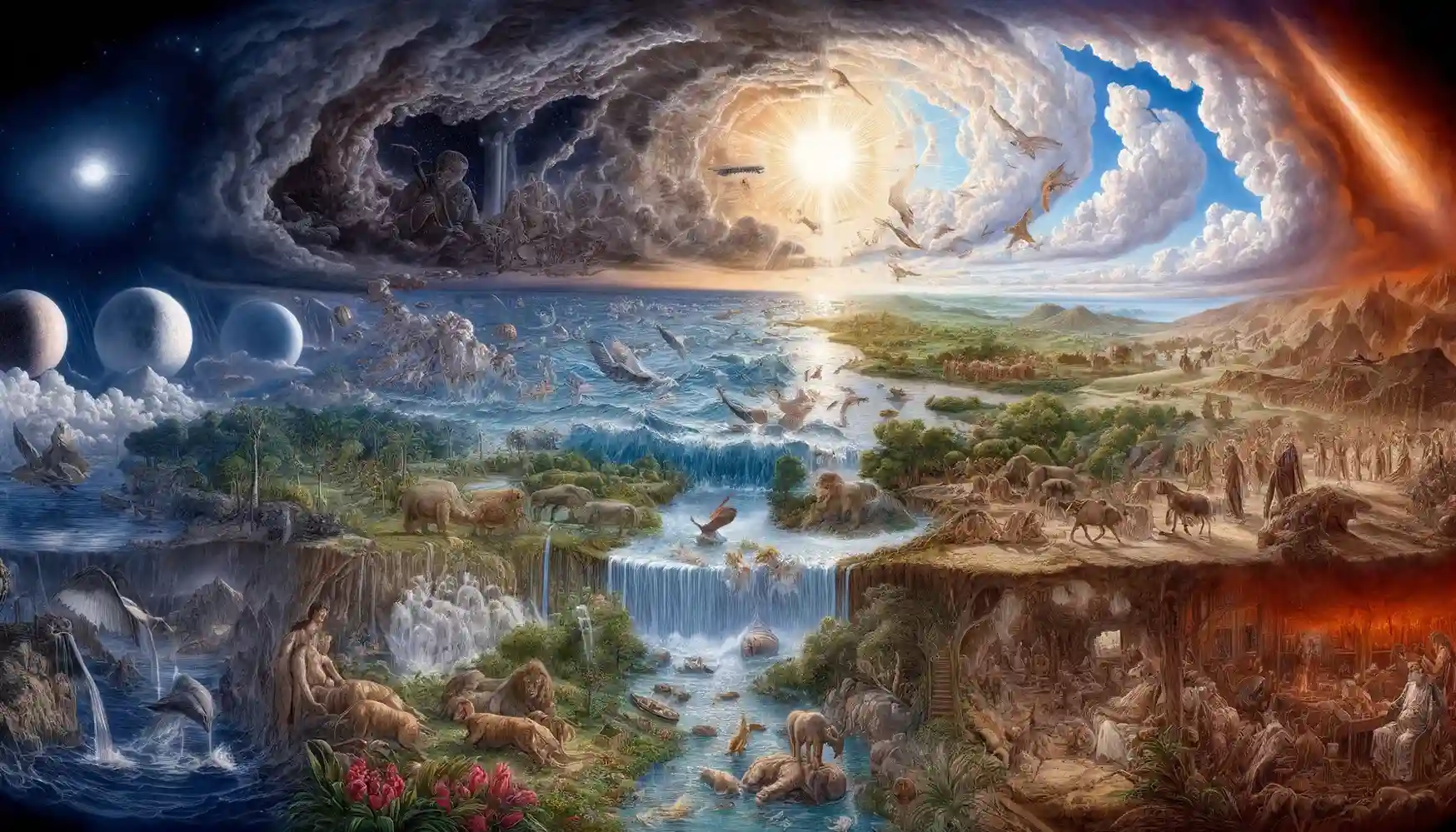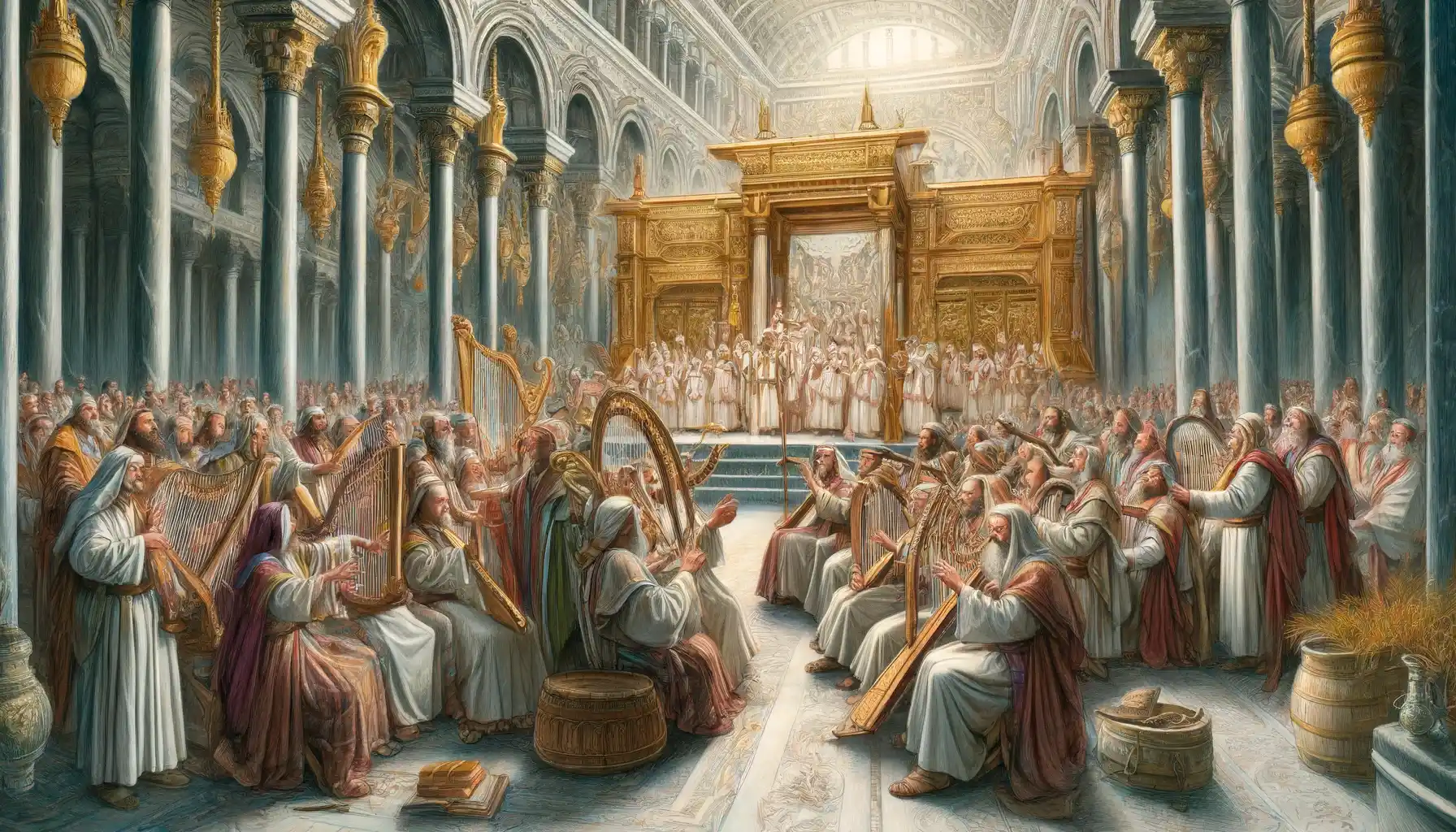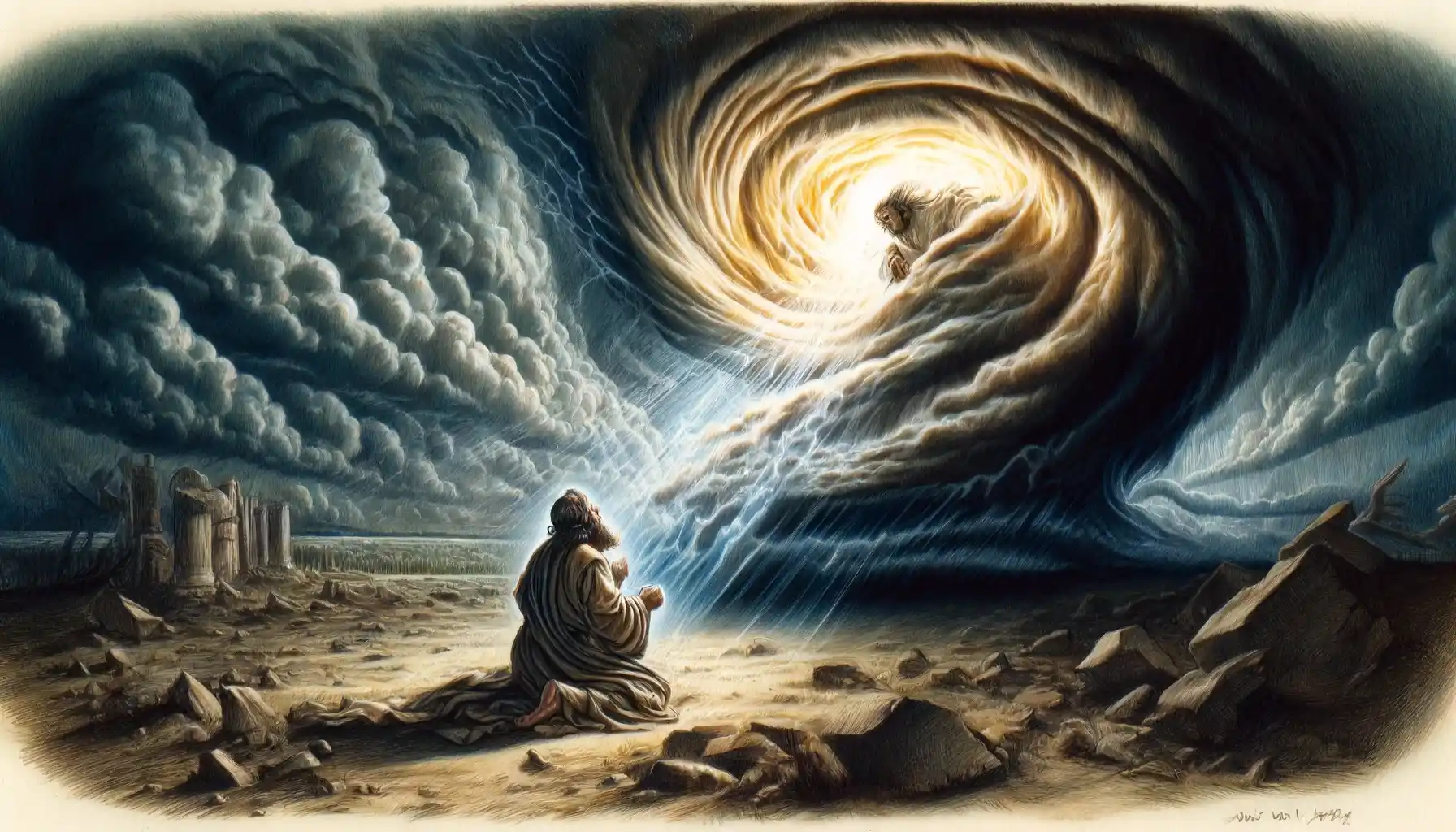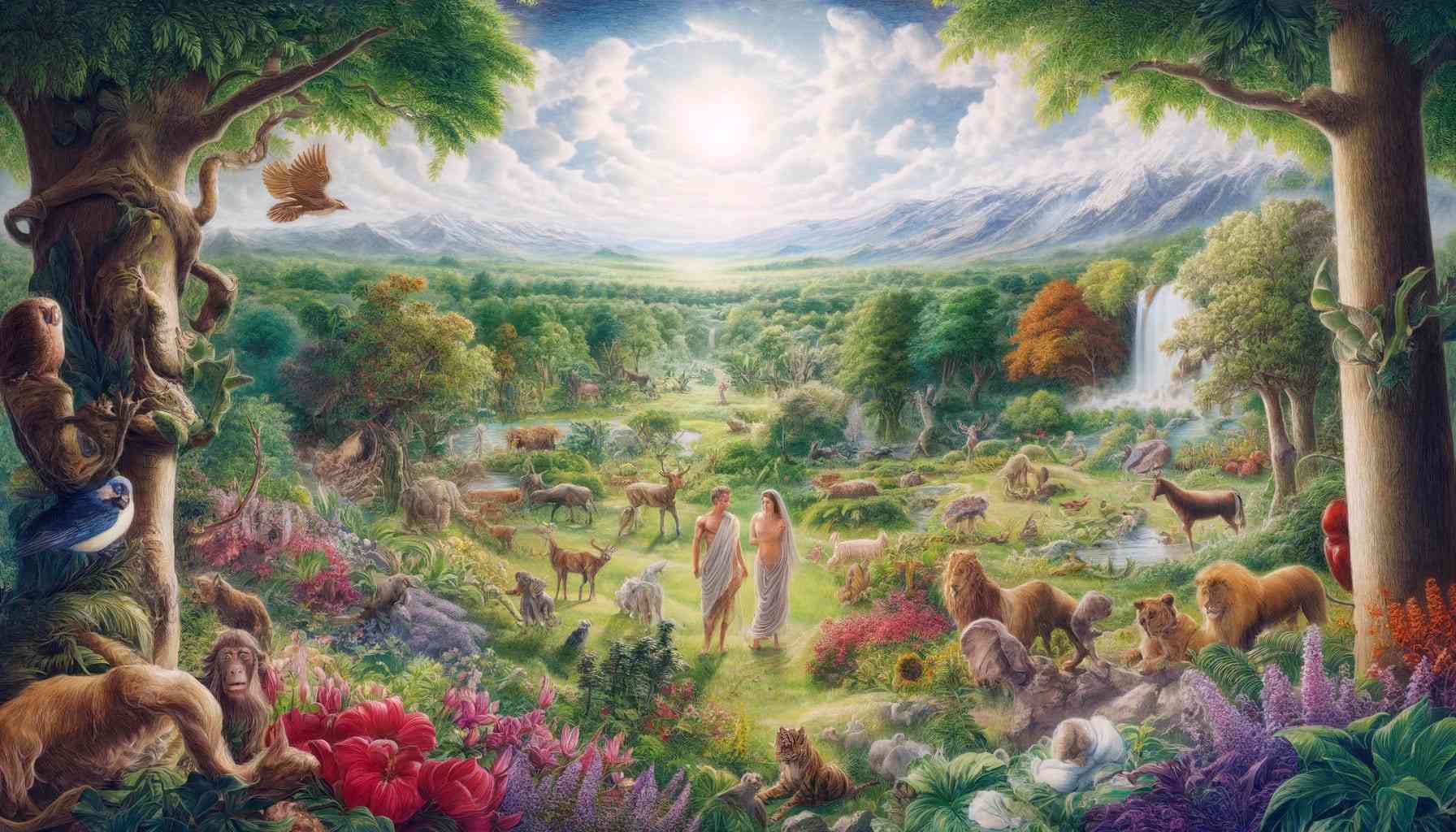Adam’s story is foundational in the Judeo-Christian tradition, encapsulating themes of creation, fall, and redemption. His life reflects both the potential and pitfalls of humanity, serving as a profound narrative on the human condition.
Eve, the first woman according to the Bible, was created from Adam’s rib and is central to the Genesis narrative, playing a key role in the events of the Garden of Eden and the onset of human sinfulness.
The first three words of the Bible are “In the beginning.” These words open the Book of Genesis and set the stage for the biblical narrative of creation. They introduce the concept of a divine origin to the universe, emphasizing that everything was initiated by God’s sovereign act. “In the beginning” signifies the start of time and the cosmos, marking the moment when God created the heavens and the earth. This foundational phrase underscores the Bible’s overarching theme of God’s supremacy and the intentional design of the world and life within it.
In the biblical narrative, angels were created by God before humans, as suggested by passages such as Job 38:4-7 where angels, referred to as “sons of God,” are depicted rejoicing at the foundations of the Earth, indicating their existence prior to the creation of mankind as described in Genesis.
The biblical narrative of creation, as described in Genesis, depicts a deliberate and structured process where God systematically forms the universe and all life within it over six days, culminating in a day of rest to sanctify and bless the seventh day.
The Book of Psalms remains one of the most cherished and widely read books in the Bible, rich in poetry and emotion, reflecting the depth and complexity of the human experience with the divine.
The Book of Job is a rich literary and theological work that invites reflection on some of life’s most profound questions, making it a timeless and universally relevant text.
The Book of Genesis explores themes such as creation, the fall, redemption, covenant, monotheism, sovereignty, sin, the patriarchs, the Imago Dei, messianic hope, and serves as a theological manifesto, spanning narratives from primeval to patriarchal history, and addressing deep questions about biblical theology, human nature, divine purpose, moral responsibility, faithfulness, genealogies, and contrasts with ancient Near Eastern myths.

